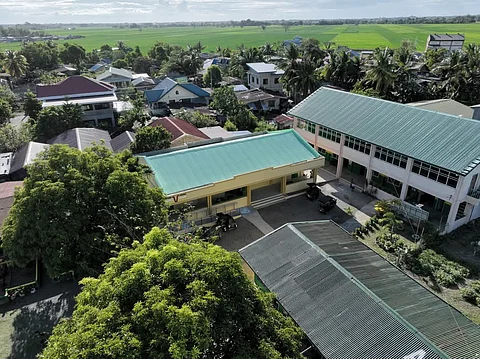
- NEWS
- the EDIT
- COMMENTARY
- BUSINESS
- LIFE
- SHOW
- ACTION
- GLOBAL GOALS
- SNAPS
- DYARYO TIRADA
- MORE

A senator has wondered why the price of a public school classroom is greater than the same room constructed by the private sector in public elementary schools.
In a television interview on Tuesday, Senator Bam Aquino revealed that each classroom in public schools, if built by the Department of Public Works and Highways (DPWH), costs P2.5 million, while those built by non-government organizations cost only P1 million.
“Why is the cost so different? Please explain to us and the public why the price of a classroom built by the government differs from that built by the private sector and local government units,” Aquino said.
The lawmaker quoted municipal mayors in his exposé.
“To build a classroom through the DPWH, according to what the mayors have told me, the cost is P2.5 million. But why is it that Angat Buhay of Ma’am Leni (Robredo), the Hope Foundation, and the Chinese Chamber can do it for just a little over a million or even less than a million pesos?” he said.
Aquino, who chairs the Senate Committee on Basic Education, said he will conduct a hearing on the issue of classroom backlogs next week, where he expects government officials to explain the disparity in construction costs.
“Once we’re able to determine what the right price is, then we can talk about how to increase the funds. How can we grow the funds and how can we all work together to build classrooms for the youth,” he said.
He said that “if we’re able to bring the price down, we will be able to double the number of classrooms.”
Education Assistant Secretary Jocelyn Andaya last June admitted that the public education system lacked 165,000 classrooms, which the Department of Education aims to resolve through public-private partnerships.
Education Secretary Sonny Angara said they are set to build 105,000 new classrooms in partnership with the PPP Center and the Department of Public Works and Highways.
As part of efforts to address the shortage of 165,000 classrooms across the country, Aquino has filed the Classroom-Building Acceleration Program (CAP) Act, which will provide supplementary support to government initiatives once passed.
The CAP Act seeks to empower capable local government units and private entities to construct classrooms that meet national standards, with funding support from the national government.
